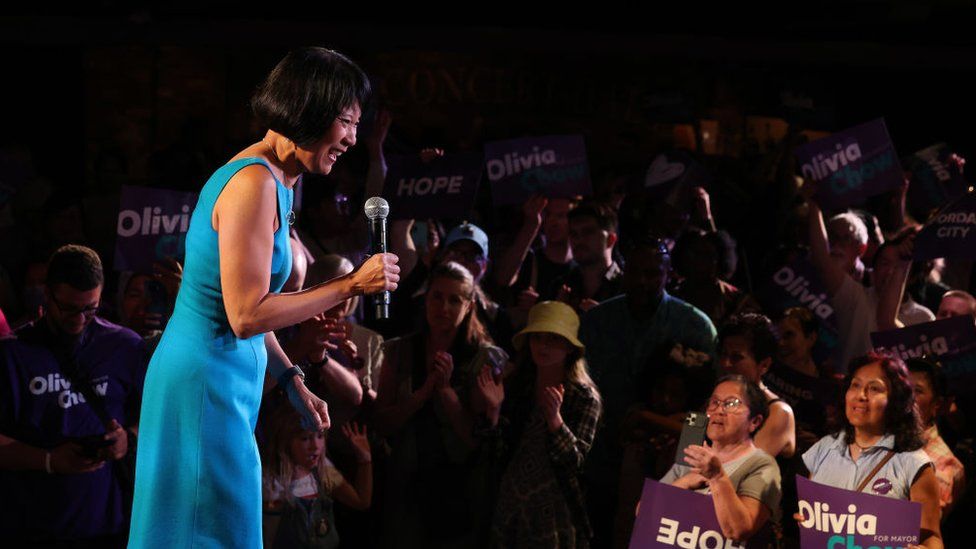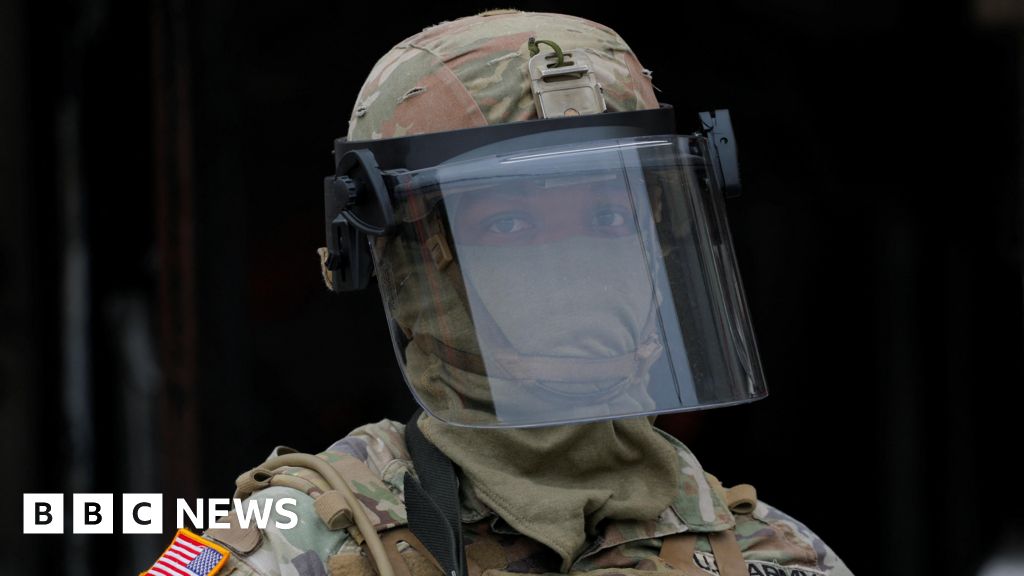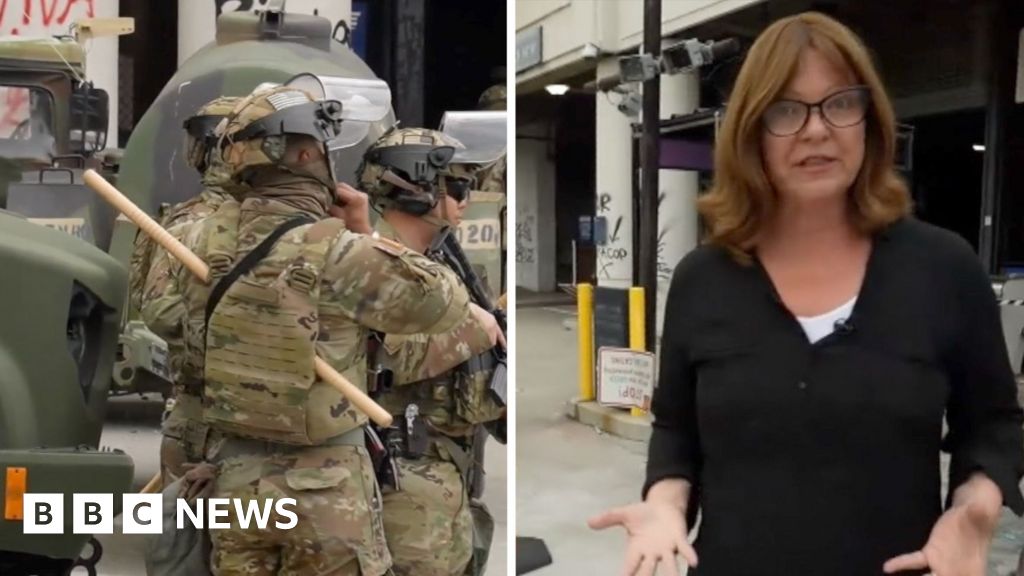ARTICLE AD BOX
 Image source, Getty Images
Image source, Getty Images
By Holly Honderich
BBC News
A left-wing progressive standard-bearer has won Toronto's mayoral election, triumphing in a historically crowded field of 102 candidates.
Olivia Chow, 66, a former member of parliament and city councillor, was widely seen as the frontrunner.
The race has focused largely on affordability and public safety.
It is the second time in eight months Torontonians voted for a mayor following the sudden resignation of incumbent John Tory.
Mr Tory, 68, a moderate conservative, stepped down in February hours after the Toronto Star newspaper reported he had an affair with a 31-year-old staffer during the Covid-19 pandemic.
Just months earlier, Mr Tory had cruised into a third term, securing over 60%.
This was Toronto's first mayoral race without an incumbent since 2014 and no clear centre-right successor to Mr Tory emerged.
Support failed to coalesce around those challengers - including former police chief Mark Saunders, who received some support from Ontario Premier Doug Ford, and former deputy mayor Ana Bailão, who received a last-minute endorsement from Mr Tory - giving Ms Chow a narrow path to victory.
It will be the first time in a decade that a progressive will lead the city and her victory suggests potential future clashes with Mr Ford, the conservative premier who said earlier this month that if she won it would be an "an unmitigated disaster".
The Hong Kong-born Ms Chow is a well-known veteran of Canadian progressive politics.
She served as a city councillor for downtown Toronto before being elected to parliament in 2006. She was married to the late federal NDP leader Jack Layton, who died in 2011.
Ms Chow previously ran for mayor in 2014 but came in third.
Her campaign focused on Toronto's housing affordability crisis, promising to build homes on city-owned land and provide more support for renters.
Her platform included more help for the city's homeless population, such as adding more social housing and the creation of "respite spaces" - where Torontonians could access showers and meals, and other critical services - that would be open around the clock.
But she faced criticism for failing to reveal how much she would raise property taxes to pay for her promises.

 1 year ago
69
1 year ago
69








 English (US) ·
English (US) ·